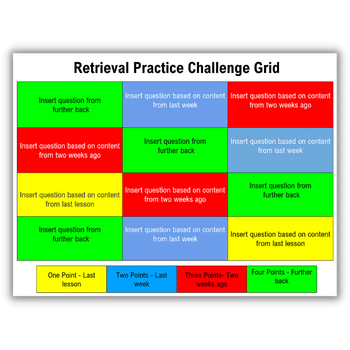Remember this – Retention strategies your students can learn from Year 7

The best way of tackling counterproductive attitudes to revision among students is to adopt a carefully structured, highly organised approach, says Jennifer Wozniak-Rush…

Whatever strategies we put in place, some pupils will always believe they don’t need to revise regularly, or worse, convince themselves that cramming is the key to success.
That’s a mindset we must address whenever we see it, but doing so takes time. In my own experience, that means implementing strategies around revision behaviour much earlier on – ideally, from Y7.
Why? Because we want to ultimately help improve our pupils’ long-term retention skills. And we do that by first asking ourselves several key questions. What do we want our pupils to remember, long after finishing this particular unit, module or key stage? What’s the most important knowledge that needs to be stored in their long- term memory? How can our pupils know what they actually need to know, and how practised are they at being able to retrieve said information? The following approaches might help.
1 | Spaced practice
After a new concept has been taught, return to that concept repeatedly in short study sessions spread out over time. You could, for example, leave a short delay between the initial teaching of a topic and subsequent homework or testing.
You could also set retrieval practice quizzes using questions from different topics. Information presented over spaced intervals is learned and retained more easily.
The Ebbinghaus Forgetting Curve is relevant here – if we want our pupils to remember things, we need to keep returning to them and reviewing them. The big question, however, is how long should the spacing be?
Reviewing ought to be relatively immediate; as the ‘to-be-learned’ information gains strength in memory, the intervals between quizzes can then be systematically increased.
2 | Interleaving
Rather that teach topic 1, followed by topics 2, 3 and so on, interleaving sees teachers mix elements from different topics together.
Retrieving information from two or more topics at once is harder, but the effort required produces longer-lasting learning. (While spacing and interleaving are different interventions, the two are linked and often work well together.)
3 | Cumulative testing
The main focus with this should be to ensure that pupils have retained and understood the information they’ve learned from their topics and modules. Learning is deeper and more durable when it’s effortful.
4 | Retrieval practice
This should always be carried out without access to notes or past work, so that teachers and pupils are able to see what can be retrieved from long term memory.
Trending
Teachers can use a range of retrieval strategies, such as retrieval grids that draw together questions from different topics. This could involve displaying three questions on the board – one from last lesson, another from last month and a third from last term.
Other activities might include using flashcards to self-test; ‘free recall’, where pupils write down everything they can remember about a topic, completing a concept map and more besides. What should be consistent, however, is that all these quizzes and tests are low stakes.
The purpose isn’t formative assessment, but to show pupils what they don’t know and to inform us, as their teachers, what we need to revisit and whether there are any misconceptions.
In my school, our KS3 cohort take part in a series of ‘learn to learn’ days throughout the year, where they learn how the brain works and the difference between working and long-term memory. We’ll also go through a range of revision techniques and undertake practice using materials provided by their teachers.
Our KS4 cohort spend half a day off timetable, during which they’ll go through six strategies for effective learning from the Learning Scientists and be reminded of efficient revision techniques. These strategies will also be shared with the students’ parents at a dedicated open evening.
Our pupils must be able to produce something tangible over the course of their revision, whether it be completed revision cards, mind-maps or revision clocks. At the same time, though, the production of revision materials doesn’t necessarily equate to retained knowledge.
Back in class, teachers should therefore check what pupils know using low-stakes testing.
Jennifer Wozniak-Rush is an assistant headteacher for teaching and learning, and an SLE in MFL.











